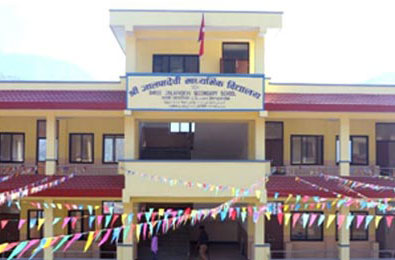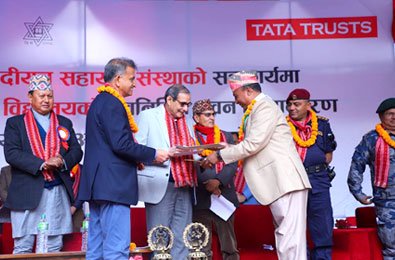Overview
It takes just one devastating act of nature to wreak havoc on entire communities. Earthquakes, cyclones, tsunamis, floods, landslides and forest fires can cause catastrophic damage to life and property.
The work undertaken by the Tata Trusts in providing disaster relief focuses on quick response to such unfortunate natural occurrences, and the provision of essential relief such as safe drinking water, medical aid, health camps, and supply of daily essentials to the affected communities.
In certain instances, once the immediate needs are taken care of, the Trusts engage with the community to set up pathways for long-term rehabilitation — including the focus on livelihoods and infrastructure for education and health services.
The challenge
In recent times, climate change has manifested itself into a serious threat, triggering a spate of natural disasters worldwide. According to a UN report, India’s economic loss on account of natural disasters occurring between 1998 and 2017 is the fourth-highest in the world, standing at $79.5billion.
The National Disaster Management Authority (NDMA) reveals that more than 58.6 per cent of the Indian land mass is prone to earthquakes, over 40 million hectares stand the risk of floods and river erosion, and almost 5,700km of the 7,516km Indian coastline remains susceptible to cyclones and tsunamis. This is a threat not just to local populations, but also to the socioeconomic fabric of the country.
Strategic approach
In times of disaster, what is needed is quick response and essential aid. The Trusts summon their teams at the affected areas, who along with partners, like-minded agencies and the Tata Sustainability Group, work relentlessly in the area to provide the daily essentials — pure water, daily need kits, medicines, tarpaulins, etc. to the affected communities.
Moreover, in few cases, the Tata Trusts’ approach is to partner government bodies, humanitarian agencies, the corporate sector, NGOs and community resources to rebuild livelihood opportunities and essential health and education infrastructure — so as to resume normalcy in affected regions.
The most recent disaster relief interventions by the Tata Trusts took place in Assam, Mizoram, Kerala, Odisha, Rajasthan, Gujarat, Uttarakhand, Nepal and Tamil Nadu.






